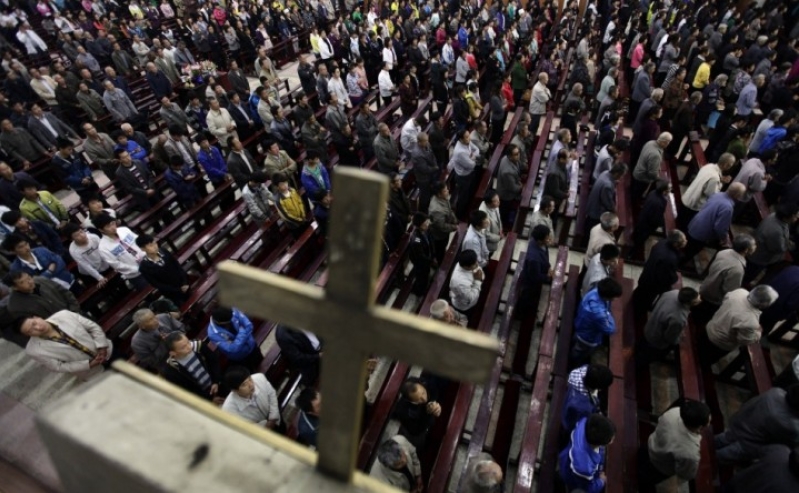
The Chinese government has drafted new restrictions in an effort to stunt the growth and influence of foreign religions including Islam and Christianity, outraging many in the faith-based community.
According to persecution watchdog China Aid, the new set of religious restrictions are scheduled to be officially enacted in early October, and seek to "suppress all unofficial religious activities via dispersing Christian house churches, silencing Tibetan and Xinjiang separatists and undermining the Vatican's influence on Chinese Catholics."
In its current form, the draft contains nine chapters and 74 articles, some of which include prohibitions on "organizing citizens to attend religious trainings, conferences and activities abroad," "preaching, organizing religious activities, and establishing religious institutions or religious sites at schools," and "providing religious services through the internet."
The articles warn against the influence of foreign powers, imposing restrictions on "accepting teaching posts in foreign countries" and "organizing religious activities in unapproved religious sites." China Aid notes that these particular restrictions are meant to hinder house churches and reduce contact with organizations outside of the government-controlled Chinese churches.
The articles also protect against religious extremism and terrorism, expressing concern regarding the infiltration of religious proselytisation into national education by a number of groups, notes the East Asia Forum.
The new restrictions aren't sitting well with some, however, including a pastor named Zhou told the outlet the revisions are evidence that the Communist Party wants to take charge of religion.
"The government wants to control everything, even the smallest aspects," he said. "One characteristic of this draft is the empowerment of local government bodies all the way down to the communities. This revision will further reduce the possibility of loosening religious control in China. It is becoming impossible."
Gao Baosheng, the pastor of a U.S.-based Chinese church, warned that "this draft will bring upon a religious winter so harsh that we must seek guidance from God." He also emphasized that the new regulations are clearly president "Xi Jinping's attempt to further manage and suppress religions by taking advantage of the laws. By observing these changes in the Draft, we can tell that the government is imposing more control on major religions."
Since the establishment of the country's religious policy in the 1990s, China's communist government has expressed fear that hostile foreign forces can use religions to "infiltrate Chinese society by winning over the population and subverting party rule". Consequently, it has banned foreign missionary work, refused to acknowledge any appointment by foreign religious entities such as the Vatican, and declared any unregistered religious groups, such as underground churches, illegal.
In 2015, Xi Jinping warned that religions must be independent from foreign influence: "We must manage religious affairs in accordance with the law and adhere to the principle of independence to run religious groups on our own accord," he said.
"Active efforts should be made to incorporate religions into socialist society," Xi said, adding that the party's religious work should be about winning over the hearts and minds of the public for the party.
In a recent op-ed, Thomas DuBois, an Associate Professor and Senior Research Fellow in Chinese Studies at the College of Asia and the Pacific, The Australian National University, explained that while the new restrictions can certainly be manipulated, they shouldn't be altogether dismissed, as it claims to protect "legitimate" religious activity, while making sure that religion does not fall into the hands of ethnic separatists or become a threat to national unity.
"[There] is also a danger in outright dismissing China's particular approach to religion, especially when countries like France and Britain are themselves coming to terms with Islamic extremism at home and preparing to follow the United States and make religious freedom legally enforceable through international policy," he wrote.
There are 67 million to 100 million Christians in China - compared with 87 million Communist Party cadres. Yang Fenggang, director of Purdue University's Center on Religion and Chinese Society, estimates that China will be home to 250 million Christians by 2030







